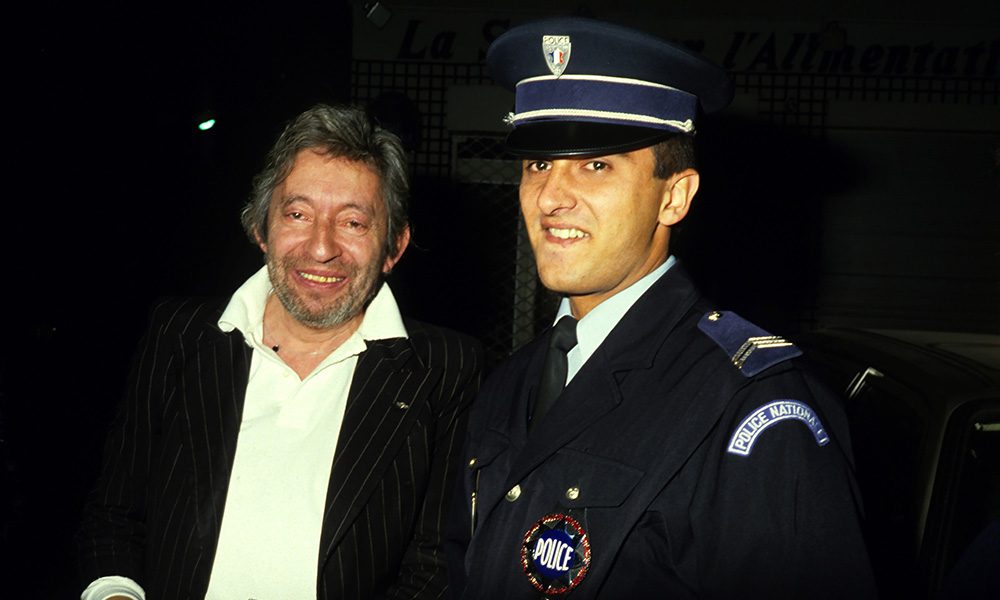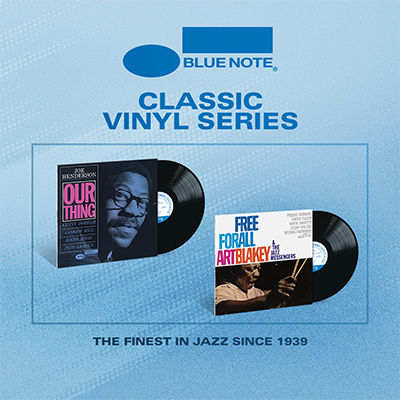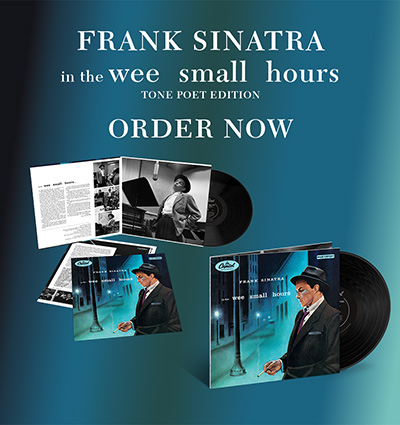Serge Gainsbourg
The French pop singer and songwriter was known for his provocative statements and songwriting as well as his hit singles.

Intoxicated man?
There was so much more to Serge Gainsbourg than grape, grain and Gitanes.
“I have no ideas,” Serge Gainsbourg airily informed viewers of Central Variétés in December 1965. This was more than a little disingenuous: and, indeed, Gainsbourg qualified it thus: “I have word associations, like the Surrealists. A cartful of ideas. It hides an absolute vacuum.”
If you didn’t know any better, you’d dismiss this as a calculatedly nihilistic shrug from the disaffected heart of 1977’s blank generation. And yet, the man born Lucien Ginsburg, on 2 April 1928, in Paris, had been dispensing uncommonly candid (or wilfully exaggerated) insights to interviewers – and casually perpetrating outrage in word, deed and subject matter – since the late 50s.
A literate, fiercely intellectual songwriter with an extraordinary facility for wordplay, inviting multiple interpretations within even his most cold-bloodedly commercial commissions, Gainsbourg straddled the worlds of high and low art with a prankster’s gusto. An unrepentant mass of contradictions, he was an enlightened aesthete who nevertheless felt compelled to “épater le bourgeois”. He was an empathetic misanthrope. He was a romantic idealist, but his love songs stalked in the shadows of erotic desperation, vengeful misogyny and lurking mortality. He was a jazz-conversant chansonnier, whose imperious disdain for shallow Yé-Yé pop in mid-60s France didn’t prevent him from cheerfully jumping aboard the gravy train – and subverting it from within.
If Gainsbourg’s talent was, demonstrably, fully formed by the time the 30-year-old’s debut (10”) album, 1958’s Du Chant À La Une! (Songs On Page One) was released, several significant factors had already coloured his outlook. To begin with, Serge’s authoritarian father, Joseph Ginsburg, was a talented jobbing pianist in his own right, with a marked fondness for Chopin and Cole Porter. The infant Serge would have been influenced by osmosis, even if his father hadn’t foisted piano lessons on the child and his twin sister, Liliane, from the age of four onwards. And then, of course, there was the appalling intercession of the Second World War. In occupied Paris, all Jews aged six or over were required to wear a yellow star with “Juif” written on it: a humiliation that scarred the adolescent Gainsbourg, and one which took until 1975 for him to fully reciprocate, with the redemptive last laugh of the Rock Around The Bunker album.
Even when Gainsbourg lost his virginity, aged 17, to a prostitute in the Barbès quartier, the experience was framed with mortifying, derisive laughter: and a little later, a thwarted assignation with Olga Tolstoy, a fellow pupil while Serge was attending the École Supérieure Des Beaux-Arts, left him with an enduring resentment. Patently, Gainsbourg could be forgiven a certain cynicism – a coolly, cruelly resigned (if mordantly humorous) worldview, reflected in the songs he had started writing by the mid-50s, after curtailing his studies and turning his back on a potential career as an artist.
Consequently, Du Chant À La Une set out Gainsbourg’s stall with a bleak flourish. In ‘Du Jazz Dans Le Ravin’, a bickering couple in a Jaguar plunge off the road to their deaths, survived only by the car radio blaring from within the chasm. ‘Ce Mortel Ennui’ tracks a relationship expiring from dispassionate boredom, while drink provides the only respite from careworn melancholia in ‘L’Alcool’. (“In the alcohol fumes, I see my castles in the clouds.”) Most arrestingly, ‘Le Poinçonneur Des Lilas’ tells the salutary tale of a suicidal ticket-puncher in the Métro, who, tiring of making “little holes”, pledges to “take a gun to make myself… one last little hole… and they’ll put me in a big hole”.
The album afforded Gainsbourg a measure of respect when it won the Académie Charles Cros Grand Prix Du Disque in 1959, but audiences were slow to warm to this unorthodox, odd-looking satirist, poleaxed with performance anxiety – which was often misconstrued as arrogance. However, Gainsbourg’s unvarnished demeanour proved that he was real – an artist who, for all his stage fright, wasn’t scared to face down the most unpalatable aspects of life and love. The approbation of singing stars Juliette Gréco and Michèle Arnaud established the notion of Gainsbourg as a dependably original songwriter for hire – a role which would become an invaluable revenue stream in the ensuing years.
While Gréco’s 1959 EP, Juliette Gréco Chante Gainsbourg, was boosting Serge’s profile, Gainsbourg himself released his second 10” album, No.2. Of particular note was ‘Le Claquer Des Doigts’ (‘The Finger Clicker’), a sleazy, delinquent vignette of latent violence by the light of a jukebox. This was arguably the first instance of Gainsbourg moulding the textures and trappings of contemporary pop to his own ends. Concurrently, a small cameo in a makeweight Brigitte Bardot movie, Voulez-Vous Danser Avec Moi? kicked off a fruitful – if fitful – film career, with Gainsbourg, routinely typecast in unscrupulous, treacherous roles. More importantly, he also received his first commissions as a soundtrack composer, with L’Eau À La Bouche and Les Loups Dans La Bergerie.
For someone who fostered an impression of insouciance, Gainsbourg maintained a rigorous work ethic; in the 60s, his already prodigious output went through the roof. In addition to further TV and film commissions (including 1963’s Strip-Tease, which involved an abortive recording session with the film’s star, Nico), and songs penned for artistes including Catherine Sauvage, Philippe Clay, Petula Clark and, significantly, Brigitte Bardot, the restless writer somehow found time to release two further 10” albums, 1961’s L’Étonnant Serge Gainsbourg and 1962’s No.4. The former contained the blackly humorous ‘En Relisant Ta Lettre’ – in which the protagonist reads a suicide note from his lover, while indifferently correcting her spelling and grammar – while the latter boasted the similarly pitiless ‘Requiem Pour Un Twisteur’ and the emblematic ‘Intoxicated Man’: both moody, modish, noir-tinged prowls.
With the release of his first 12” LP, 1963’s Confidentiel, Gainsbourg worked the jazz proclivities out of his system in a clubbable trio format, with guitarist Elek Bacsik and double-bassist Michel Gaudry. If the low glow of ‘Elaeudanla Téïtéïa’, ‘Scenic Railway’ and ‘Maxim’s’ exuded the intimacy of an after-hours jazz hole, ‘Chez Les Yé-Yé’ was another simmering tableau of juvenile misconduct: “Yes, I’ll end up in Sing-Sing: I have a switchblade…”
Gainsbourg’s next album, 1964’s spare and supple Gainsbourg Percussions, placed a far-sighted emphasis on Afro-Cuban rhythms ¬(and was heavily indebted to the Nigerian recording artist, Babatunde Olatunji). Given the strength and sophistication of his melodic sense, there was always a profoundly percussive element to Gainsbourg’s lyrics and phrasing: and herein, songs such as ‘Couleur Café’ and ‘Pauvre Lola’ duly pulsed and swayed with inner rhythms. The coltish laughter on the latter track belonged to the 17-year-old France Gall – a freshly signed Philips labelmate – and the song’s Lolita subtext, referencing Vladimir Nabokov’s contentious 1955 novel, peeked from a can of worms which Gainsbourg would bait the public with for the rest of his life.
Gainsbourg’s professional alliance with France Gall had paid off earlier in 1964, as she took his sparkling compositions ‘N’Écoute Pas Les Idoles’ and ‘Laisse Tomber Les Filles’ into the charts – winning the bemused songwriter some useful Yé-Yé credibility in the process. In 1965, meanwhile, the Gainsbourg/Gall partnership resulted in a Eurovision Song Contest win (for Luxembourg) with ‘Poupée De Cire, Poupée De Son’. Ambivalent about his suddenly voguish stature, Gainsbourg kept cranking out entertaining chart fodder (including ‘Baby Pop’ for France Gall, and ‘Bubble Gum’ for Brigitte Bardot), but routinely threaded cunningly poisonous barbs into his lyrics. In due course, Gainsbourg broke cover with ‘Les Sucettes’, released on a 1966 France Gall EP, in which the song’s central image – “the lollipops of love” – was initially lost on the understandably naïve 18-year-old Gall.
The unrepentant Gainsbourg had already executed an artistically profitable sidestep by providing the songs – including the appropriately luminous ‘Sous Le Soleil Exactement’ – for the 1967 TV film Anna, starring Anna Karina. Furthermore, the middle-aged enfant terrible kept the controversy quotient topped up by embarking upon a three-month affair with Brigitte Bardot in late 1967. Bardot was married at the time to the German multi-millionaire playboy Gunter Sachs, so the tryst wasn’t fortuitously starred: but it did at least result in the writing and original recording of Gainsbourg’s best-known composition, the deathless ‘Je T’Aime… Moi Non Plus’. Penned following a calamitous first date, after which Bardot demanded that Gainsbourg write her the ultimate love song, ‘Je T’Aime…’ is so much more than a soft-porn quickie. Bardot is clearly in the (erogenous) zone – as an acting performance, it’s up there with her turn in Le Mépris – but the courtly melody, and Michel Colombier’s gently see-sawing heat-haze of an arrangement, convey a real, if fleeting, tenderness. Gainsbourg’s lyrics, meanwhile, take the fatalistic long view, even in the heat of the erotic moment (“I love you…” “Me neither”).
Bardot’s conscience eventually got the better of her, so the song’s original version remained unreleased until 1986. But Gainsbourg would, of course, shortly re-record the song – to seismic effect – with Jane Birkin. Meanwhile, Gainsbourg wrote several more songs with Bardot in mind – including ‘Harley Davidson’, ‘Contact’ and the ravishing, allegorical, us-against-the-world duet, ‘Bonnie And Clyde’ – and, after the affair, would philosophically counsel his own grief on the cantering, Dvořák-quoting title track of 1968’s Initials BB.
It was also in 1968 that Gainsbourg was momentously fated to meet the Jane Birkin when both were cast to appear in Pierre Grimblat’s film Slogan. Birkin, recently separated from her first husband, John Barry, would recall that Gainsbourg was initially patronising and dismissive towards her: but in time, following a long, romantic and endearingly clumsy night on the town, the pair became a long-term item. A notorious item too, following the 1969 release of their version of ‘Je T’Aime… Moi Non Plus’. Banned in Italy, Sweden and Spain, denounced by the Vatican and, naturally, banned by the BBC, the song straddled its infamy all the way to the UK No.1 spot.
Meanwhile, the 1969 album, Jane Birkin – Serge Gainsbourg, headed by ‘Je T’Aime…’ contained the equally startling ‘Jane B’, in which Birkin blankly sings a police report concerning an English girl, presumably murdered, “aged between 20 and 21… missing this morning at 4.40”, over a gorgeously chilly précis of Chopin’s ‘Prelude No.4, Opus 28’. The dead girl’s name? Jane B, of course. If this was the dreadful antithesis of wish-fulfilment, Gainsbourg sailed equally close to the wind with his undisputed masterpiece – 1971’s poetic, symphonic song suite, Histoire De Melody Nelson. Gainsbourg explained the plot to Discorama’s Denise Glaser: The narrator, in a Rolls-Royce just like Serge’s own, knocks a red-headed English girl, shockingly aged “about 14 or 15”, off her bicycle, and: “I fall in love with her, or fall on her, whatever.” The narrator takes Melody’s virginity in a “private hotel” before she catches a plane home, only to be killed when it crashes. Gainsbourg concludes the album by evoking the cargo cults of Papua New Guinea, who prayed that jets flying overhead would crash, enabling them to pillage the freight. In turn, Gainsbourg, as narrator, holds out forlorn hope for “an air disaster that could return Melody to me”.
One can only speculate as to Gainsbourg’s motives for devising such a dark parable, with such dangerously autobiographical parallels: but in Darran Anderson’s 33⅓ book about the album, the author notes: “In the first bloom of infatuation with Jane, Serge was blighted with the curse of happiness. The poet needs heartbreak at least as much as he or she needs love.” Melody Nelson accordingly resonates with a luxuriant sadness. With its bedrock electric trio recorded, immaculately, in Philips’ Marble Arch facility (Gainsbourg had long favoured British recording studios and session players) the album was also a staggering showcase for the intuitive talents of orchestral arranger Jean-Claude Vannier, who had already collaborated with Gainsbourg on the soundtracks to Slogan, 1969’s La Horse and 1970’s Cannabis. The scratchy, spartan funk of Melody Nelson’s electric trio forms an inscrutable core around which the glowering, phantasmal string parts billow, suggestive of gathering clouds (of sexual tension, remorse, appalling portent, despair). Gainsbourg himself, candidly close-miked, quietly confides this conflicted morality tale – which, again, appears strongly analogous to Lolita – in a tone somewhere between conspiratorial and confessional.
If Gainsbourg had now delivered his defining sex-and-death statement, there was a definite sense that he had momentarily divested himself of at least one psychic burden. His output in 1972 (notwithstanding his compositions for Jane’s solo album, released the following year as Di Doo Dah), largely consisted of the gamely cheeky single, ‘La Décadanse’, and the theme song for the Claude Barri film, Sex Shop – so swooningly pretty, compared to its tawdry title, that it irresistibly calls to mind Spinal Tap’s ‘Lick My Love Pump’.
Gainsbourg bounced back from a disturbingly premature heart attack in May 1973 with the bluntly scatological Vu De L’Extérieur (Seen From The Outside), heralding a period of posterior-based contemplation that was taken to its ultimate degree in Gainsbourg’s only novel, 1980’s odiferous “distorted autobiography”, Evguenie Sokolov. However, far from a childish obsession, Vu De L’Extérieur had a distinct seriocomic purpose – not to mention an admonitory undercurrent of self-disgust. As Sylvie Simmons points out in A Fistful Of Gitanes: “As an exploration of what it means to be human, the contrast between man’s… moral consciousness and the base mechanics of his body… it was damn clever.’ Besides which, ‘Je Suis Venu Te Dire Que Je M’En Vais’ (‘I Came To Tell You That I’m Leaving’) was as elegant and affecting a song as Gainsbourg ever wrote.
March 1975 saw the long-deferred catharsis of Rock Around The Bunker, in which Gainsbourg finally took his chuckling revenge on the Nazis by blowing smoke in their faces. With its sprightly female backing vocals and bracingly demeaning imagery (‘Nazi Rock’, ‘Tata Teutonne’), the album still found room for ‘Yellow Star’, a nonchalantly poignant portrait of Gainsbourg’s adolescent self beneath its jocose swagger. “I won the yellow star, and on this yellow star, there may be marked sheriff, or marshall, or big chief…”
Gainsbourg’s next undertaking, November 1976’s L’Homme À Tête De Chou (The Man With The Cabbage Head), could be construed as a companion (master)piece to Melody Nelson, though there is little Melody Nelson‘s stricken regret in this enticingly lurid crime of passion. Named after a surrealist statue in the garden of Gainsbourg’s Paris home at 5 Bis Rue De Verneuil, L’Homme À Tête De Chou traces the unfortunate fate of Marilou, a young shampoo girl, whose unfulfilling affair with the jealous narrator ends up with him fatally striking her with a fire extinguisher, then using the foam to conceal the body. The concluding track, ‘Lunatic Asylum’, sees the incarcerated, “cabbage-headed” narrator beset by “crazy messages”: but, en route, the sensual semantic spirals of ‘Variations Sur Marilou’ represent another career highlight.
Basking in the afterglow of a bonafide hit single, 1978’s ‘Sea, Sex And Sun’, and with critical plaudits for his compositions on Jane Birkin’s fifth solo album, Ex Fan Des Sixties, Gainsbourg flew to Jamaica to record a French reggae album. Enlisting the aid of reggae A-listers including Sly Dunbar, Robbie Shakespeare and The I-Threes, Serge summarily produced 1979’s blithe, beautiful Aux Armes Et Cætera – and, in the process, touched off a scandal to eclipse even that which enveloped ‘Je T’Aime…’, when the title track turned out to be a sleepily muttered reggae version of the French national anthem, ‘La Marseillaise’. This was perceived as cultural heresy by fanatical right-wingers, and bomb threats overshadowed the subsequent concert tour – Serge’s first since 1965. The cumulative result of all the flak, however, was a triple-platinum album.
Between the release of Aux Armes Et Cætera and it’s 1981 follow-up “Freggae” album, Mauvaises Nouvelles Des Étoiles, Jane and Serge had separated, leading the latter into a dismaying pattern of wanton, irresponsible behaviour. Gainsbourg’s alter-ego – the dissolute, self-parodic figure of Gainsbarre – dates from this era, first encountered in the self-demythologising lyrics of ‘Ecce Homo’. This was also the decade during which Gainsbarre became a reliably unreliable fixture on French TV, famously burning a 500-franc note on one programme, to nationwide fury. But Gainsbourg’s sensitivity hadn’t altogether deserted him, as evinced by the songs of hurt (such as ‘Fuir Le Bonheur De Peur Qu’il Ne Se Sauve’ (‘Run Away From Happiness For Fear It Will Run Off’)) that he wrote for Birkin’s 1983 solo album, Baby Alone In Babylone.
At the urging of loyal producer Philippe Lerichomme, who had been in Serge’s corner since L’Homme À Tête De Chou, Gainsbourg flew to New Jersey to record 1984’s Love On The Beat, with Asbury Jukes guitarist Billy Rush co-producing. The resulting songs, all with terse English titles (‘I’m The Boy’, ‘No Comment’, ‘Harley David Son Of A Bitch’), had an icy, modern sheen: and if the sleeve photograph of Gainsbourg made up to resemble a woman wasn’t sufficiently provocative, the track ‘Lemon Incest’ – recorded with Serge and Jane’s then 13-year-old daughter, Charlotte – pushed the public’s forbearance right over the edge. Built upon another Chopin étude, the song was widely upheld as proof of Serge’s moral degeneracy, but nevertheless went to No.1 – and Gainsbourg himself seemed genuinely shocked that anyone could have taken him seriously.
Gainsbourg’s last studio album would be 1987’s You’re Under Arrest – a pugnacious, determinedly contemporary rap record. Throughout the 70s and 80s, over and above his recording career, Serge had characteristically busied himself with extra-curricular collaborations and activities, including films (such as his own, ill-fated Je T’Aime Moi Non Plus in 1976, Charlotte For Ever in 1986 and 1990’s Stan The Flasher), well-attended tours and even advert work: but by 1990, when the frequently hospitalised Gainsbourg was writing the often valedictory songs for Jane’s Amours Des Feintes album, living up (or down) to his dissipated public image was literally killing him.
Serge’s put-upon heart finally gave out on 2 March 1991. In Paris, the outpouring of grief was on a monumental scale. For all of the various outrages Gainsbourg had foisted upon his home country, its natives realised that they had lost a quintessential Frenchman: a literary titan, a potent symbol of unquenchable liberty, and a polarising, incendiary figure in the tradition of so many of his surrealist heroes: Alfred Jarry, Tristan Tzara, Salvador Dalí. His influence has permeated so much contemporary rock music that it’s impossible to trace all the rivulets: but certainly, Beck, Stereolab, The Bad Seeds, Air, Sonic Youth, The Divine Comedy and The High Llamas would have been lesser entities without Gainsbourg’s liberating example.
Words: Oregano Rathbone














